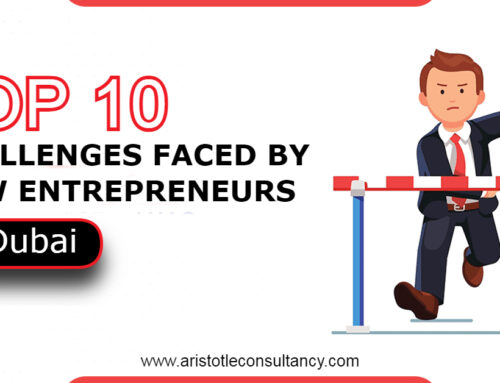 On 10th July 2014, Finance Minister Arun Jaitley presented his government’s first Union Budget after being in power, which was the longest budget in the history of Indian Republic consisting of more than 16000 words. The budget was the most sought after document which was to serve as a testimonial to Modi government’s vision for India. While different analysts have opined differently on the ability of the budget to bring back the ‘aache din’ for India, we look at the brief of the budget to understand its long term implications. Following are the changes brought about by Arun Jaitley with respect to the mentioned areas.
On 10th July 2014, Finance Minister Arun Jaitley presented his government’s first Union Budget after being in power, which was the longest budget in the history of Indian Republic consisting of more than 16000 words. The budget was the most sought after document which was to serve as a testimonial to Modi government’s vision for India. While different analysts have opined differently on the ability of the budget to bring back the ‘aache din’ for India, we look at the brief of the budget to understand its long term implications. Following are the changes brought about by Arun Jaitley with respect to the mentioned areas.
Direct Taxes
· Basic Exemption limit for Individual and HUF increased by Rs. 50,000 to Rs. 2,50,00 and for Senior Citizens to Rs. 3,00,000.00
· No change in tax rates for Company / Firm Society.
· No Change in Surcharge and Education Cess.
· In the PPF Scheme, annual investment ceiling will be enhanced to INR 150,000 from INR 100,000 at present.
· 15% additional investment allowance to manufacturing undertakings investing more than INR 250 millions per year in Plant and Machinery upto 31 March, 2017. Existing benefit of investment allowance to continue
· 10-year tax holiday to undertakings that begin generation, distribution and transmission of power by 31 March, 2017
· For set-off or carry forward and set-off of losses, business of trade in shares excluded from the definition of speculation business.
· Expenditure on the corporate social responsibility (CSR) will not ordinarily be allowed as deduction
· Mutual Funds, Securitization trusts and Venture Capital Companies or Venture Capital Funds obligated to file returns of income
· More AAR Benches to be constituted, Scheme of Advance ruling supposed to be extended to resident taxpayer.
Indirect Taxes
· Online and mobile advertisement will be under the Service Tax net.
· Renting of immovable property by Educational Institutions will not enjoy the exemption in service tax.
· Exemption to ‘auxiliary educational services’ received by an educational institution replaced with a specific list of services received by an educational institution such as transportation of students, staff, etc, catering, security, cleaning, etc
· Following Services are exempted from the Service Tax. .
· Services provided by a tour operator to a foreign tourist in relation to tour conducted wholly outside India
· Life micro-insurance schemes for the poor, approved by IRDA, where sum assured does not exceed rupees fifty thousand.
. Services availed by RBI from outside India in relation to management of foreign exchange reserves.·
. Technical testing or analysis of newly developed drugs on human participants by a clinical research organization, has been removed.
· Reverse charge mechanism extended to include recovery agent services provided to banks, NBFC’s and other financial institutions.
· Proportion of service tax payable under reverse charge by a service recipient of rent-a-cab services (non-abated) increased to 50% (effective 1 October 2014)
· CENVAT credit of services provided by one rent-a-cab scheme operator to another and by one tour operator to another tour operator allowed (effective 1 October 2014)
· Removed the Special additional duty (SAD) from inputs / components used in the manufacture of personal computers.
· Reduction of Basic custom duty from the LCD and LED below 19 inches from 10% to NIL.
· Increase in Excise duty on cigarettes.
Other (State of Economy)
· Proposal for developing 100 smart cities
· FDI limit in Defense sector has been increased to 49% from 26% however subject to the condition that ownership and management will be in under Indian citizens
· Rs. 150 Crores provided for Women safety
· Provision of Rs. 200 Crores for Statue of Unity a Gujrat government initiative
· Rs. 2037 Crores for Ganga Cleaning plan “Namami Gange”.
4 new AIIMS and 5 new IITs & IIMs
An Analysis
Honorable Finance Minister started his budget with the words “The people of India have decisively voted for the change”, the change to run and uplift the economy on “Increase the resources” approach instead of “Reduce the expenditure” approach in a bid to keep fiscal deficit under control while also attracting foreign fund inflow. He while presenting the budget also asserted that “The task before me today is very challenging because we need to revive growth, particularly in manufacturing and infrastructure to raise adequate resources for our developmental needs. On the other hand task is simple if we accept the principle that we can’t spend beyond our means”.
This was the reason; Finance minister did not pull his hands in making provision for various projects. Govt. has opened the FDI up to 49% in defense sector, a sudden move criticized by many leaders in opposition but a necessary one to fund the current defense budget which is 12.5% higher than last budget and also a means to achieve govt. goal to shift the import of defense equipments to own manufacturing. In a bid to increase revenue, govt. has increased the excise duty in the range of 11% to 72% on cigarettes serving dual purposes. The move to bring online and mobile promotions under the ambit of service tax is another means to increase cash on the rising trend of internet promotions.
Allocation of funds for Ganga Cleaning plan and development of new IITs, IIM, AIIMs is indicative of the government vision for infrastructure development. Definitely 100 smart cities provisioned in the budget provide for reducing the burden on current metro cities and encourage inclusive growth. 10 year tax holiday period to the undertakings for generation, transmission and distribution of electricity is definitely to promote investment in this sector thus solving India’s energy problems.However non allowance of expenditure on CSR activities comes as disappointing news for the companies.
Summarizing the budget it can be said that Arun Jaitley did the needful for giving a boost to India’s growth. Although there are some grey areas in the budget but he made no mistake to justify his position in his first budget and has left no stone unturned in his endeavors to kick start the economy.
Learn more about accounting outsourcing services at Aristotle Consultancy.
Keywords: Budget 2014, Arun jaitley,Modi budget, Acche din, Direct tax, indirect tax
Author: Hariom Gupta
Read More : Deepak Dhamija’s Article on Manmohan Singh’s Economic Legacy Featured in Power Corridor magazaine






